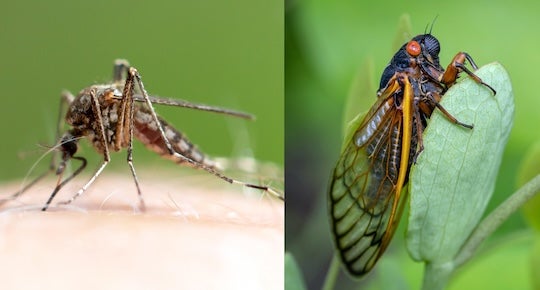As summer arrives and temperatures rise, two familiar seasonal phenomena are set to make a dramatic return: swarms of mosquitoes buzzing through major U.S. cities and the chorus of cicadas emerging after years underground.

Experts from Rice University are available to discuss the upcoming mosquito and cicada seasons.
Cicada life cycle, insect species discovery and biodiversity
Scott Egan, associate professor of biosciences
Egan can discuss the life cycle of cicadas and the mechanisms behind the evolution of new species. His research integrates natural history, genomics and field experiments to understand how natural selection drives the emergence of new species.
Egan is also involved in biodiversity discovery, including more than 20 new species of insects in Texas' Gulf Coast region, as well as interdisciplinary projects that utilize environmental DNA to monitor biodiversity and detect rare species.
Climate and disease vector dynamics
Sylvia Dee, assistant professor of Earth, environmental and planetary sciences and civil and environmental engineering
Dee is an expert on the impact of rising temperatures on the spread of infectious diseases as well as how urbanization creates new habitats for disease-carrying vectors such as mosquitoes. She is a key member of the Texas Virosphere Project, which aims to predict and prevent climate-driven outbreaks by integrating climate science, metagenomics and machine learning.
Community dynamics, seasonal patterns and climate
Volker Rudolf, professor of biosciences
Rudolf studies how changes in temperature regimes and the timing of seasonal events, including when insects emerge, affect the dynamics and structure of populations and communities. He studies how these factors influence the processes that regulate animal populations and their distributions as well as interactions between species. Rudolf aims to develop predictive models that help explain how these factors shape the balance of life in ecosystems.






